It’s no surprise that Choi Dong-hoon’s Assassination (2015) was such a box office hit, still—seven years after its release—sitting at number seven in South Korea’s all-time charts of box office revenue and admissions. It has a high-tension story, studded with spectacular explosions and shoot-outs; an excellent big-name cast, including Lee Jong-jae, Ha Jung-woo, Cho Jin-woong and Jun Ji-Hyu; superb sets and costumes; comedy, tragedy, and lots of colonial-era Japanese villains.
With screenwriter Lee Gi-Cheol, writing partner on The Thieves (2012), Choi Dong-hoo creates a stylish, witty period film that involves even more chases, explosions and gun fights than its high-stakes heist predecessor. There is more than one assassination—and assassination attempt—in this movie, and many different targets: some are real-life figures from Korea in the early twentieth century, with major resonance for local audiences, and others are invented.
The first assassination attempt takes place in 1911, at the gracious Sontag Hotel in Seoul—the landmark European hotel in the city, built in 1902 and demolished twenty years later. (During Japanese colonial rule the city of Seoul was known as Gyeongseong to Koreans, and this name is used throughout the movie.) Kang In-guk (Lee Geung-young of Inside Men and The Battleship Island) is an unctuous local businessman on the make, invited upstairs to dine privately with Japanese Governor-General Terauchi (Lee Young-suk of Burning) and to lobby for mining rights. A bomb blast spoils their lunch, and resistance fighter Yem Sek-jin—Lee Jung-jae of Squid Game and Deliver Us from Evil—fights his way upstairs to finish off the Governor-General. He doesn’t succeed, and has to hide, wounded, in a nearby house.
The house belongs to Kang In-guk, whose wife (Jin Kyung of Veteran) opposes Japanese rule. “We were just handed over,” she tells her husband, coolly smoking a cigarette. “By someone like you.” She promises to remove Yem Sek-jin that night, but the escape plans go awry. Kang In-guk sends his own assassins—including his loyal butler (Kim Eui-sung of Extreme Job) after his wife and her resistance fighter friend. He only cares about the return of his twin baby daughters. His wife is shot dead by the butler but just one baby is returned to her father; the wet nurse escapes with the other child. Yem Sek-jin is captured by the police. The events of this particular day will have ramifications for the rest of the film—largely set in 1933, and then after World War II ends and Japanese rule is over.
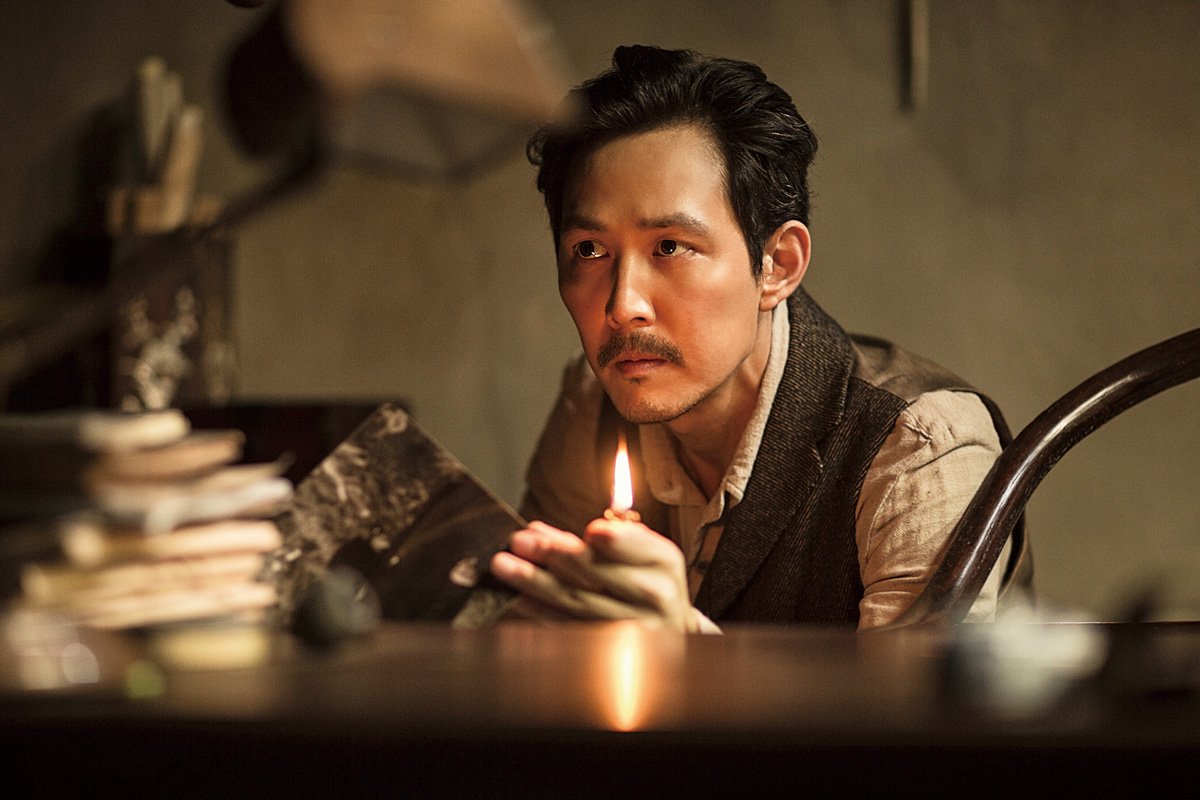
A complaint levied at Assassination is that there are too many characters and different time periods, but the main strands of the story aren’t difficult to follow. Yem Sik-jin escapes from police custody—minus a finger—after ten days to become a fabled member of the resistance, rising to the rank of captain in one of the many nationalist factions trying to oust the Japanese. In Seoul, Kang In-guk gets older and richer, ensuring his surviving daughter has a Japanese name (Mitsuko) and rich Japanese fiancé. In 1933, Yem Sik-jin is in Shanghai looking for spies who are traitors to Korea while the Japanese authorities are looking for Koreans who are traitors to Japan, including the real-life Kim Koo, a leader of the Provisional Korean government in exile. Kim Koo—played here by Kim Gong-fa of The Man Standing Next—was known as the Assassin, and was assassinated himself by political opponents in 1949.
Kim Koo’s base is in misty, watery Hangzhou, where another wanted Korean, Kim Won-bong (Cho Seung-woo of Stranger), seeks him out. (The real Kim Won-bong survived the war only to be purged by Kim Il-sung and die in mysterious circumstances in the late 50s.) Yem Sik-jin is commissioned to assemble a team of three assassins for a hit in Seoul, though his superiors won’t reveal the target. The team are three oddities who won’t be known to the Japanese in Korea, all currently in jail in China. One is a young woman named Ahn Ok-yun (Jun Ji-hyun of The Thieves and Kingdom: Ashin of the North), an expert sniper with the Korean Independence Army. The other two are explosives expert and goblin-like Hwang Dok-sam (Choi Deok-moon of The Thieves) and Chu Sang-ok, AKA “Big Gun” (the expertly sly Choi Jin-woong of The Handmaiden) with his trademark kangaroo punch to the gut.
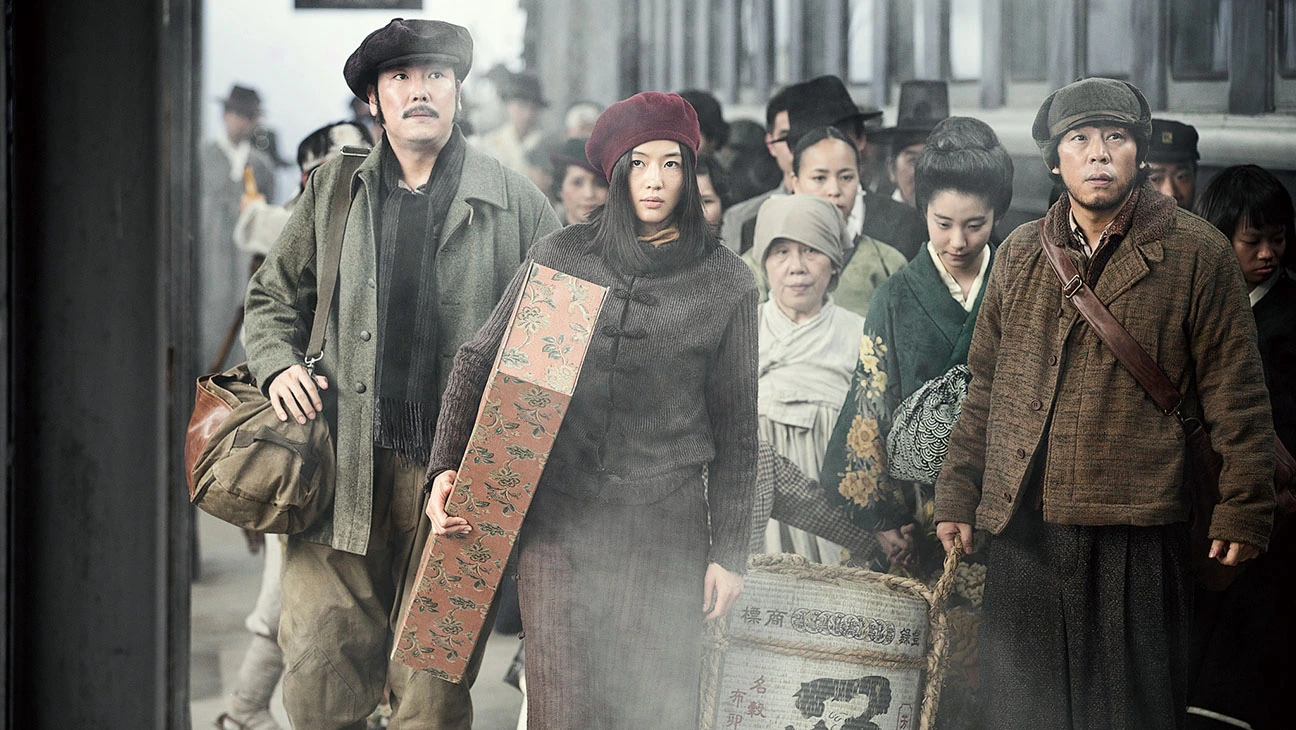
The men seem hapless but Ahn Ok-yun is steely and determined. Big Gun says he doesn’t like the idea of a female leader. “Why were you convicted?” Kim Won-bong prompts Ahn Ok-yun, and she reports that it was for shooting her superior. “You be captain, then,” Big Gun says, without missing a beat. Their mission is to travel to Seoul to assassinate Kawaguchi Mamoru, a general who led an infamous massacre of Koreans living in China, and his “lap-dog” Kang In-guk.
Shanghai is a city of gangsters and gamblers, elegant shops and hotels, French coffee and opium dens, all gloriously realised on the vast Chedon Film Park and through the superb art direction of Ryu Seong-hee, known for her work on major films like The Handmaiden, Ode to My Father, The Host, Oldboy, and Memories of Murder. The detailed recreation of 1930s central Seoul was built north of the city, in Goyang, where parts of Parasite and Kingdom were filmed. A note on the costume design: it’s by Cho Sang-gyeong (Squid Game, The Handmaiden, Inside Men, Veteran, The Royal Tailor, etc) working with Son Na-ri, member of her Gomgom costume design studio (Illang: the Wolf Brigade).
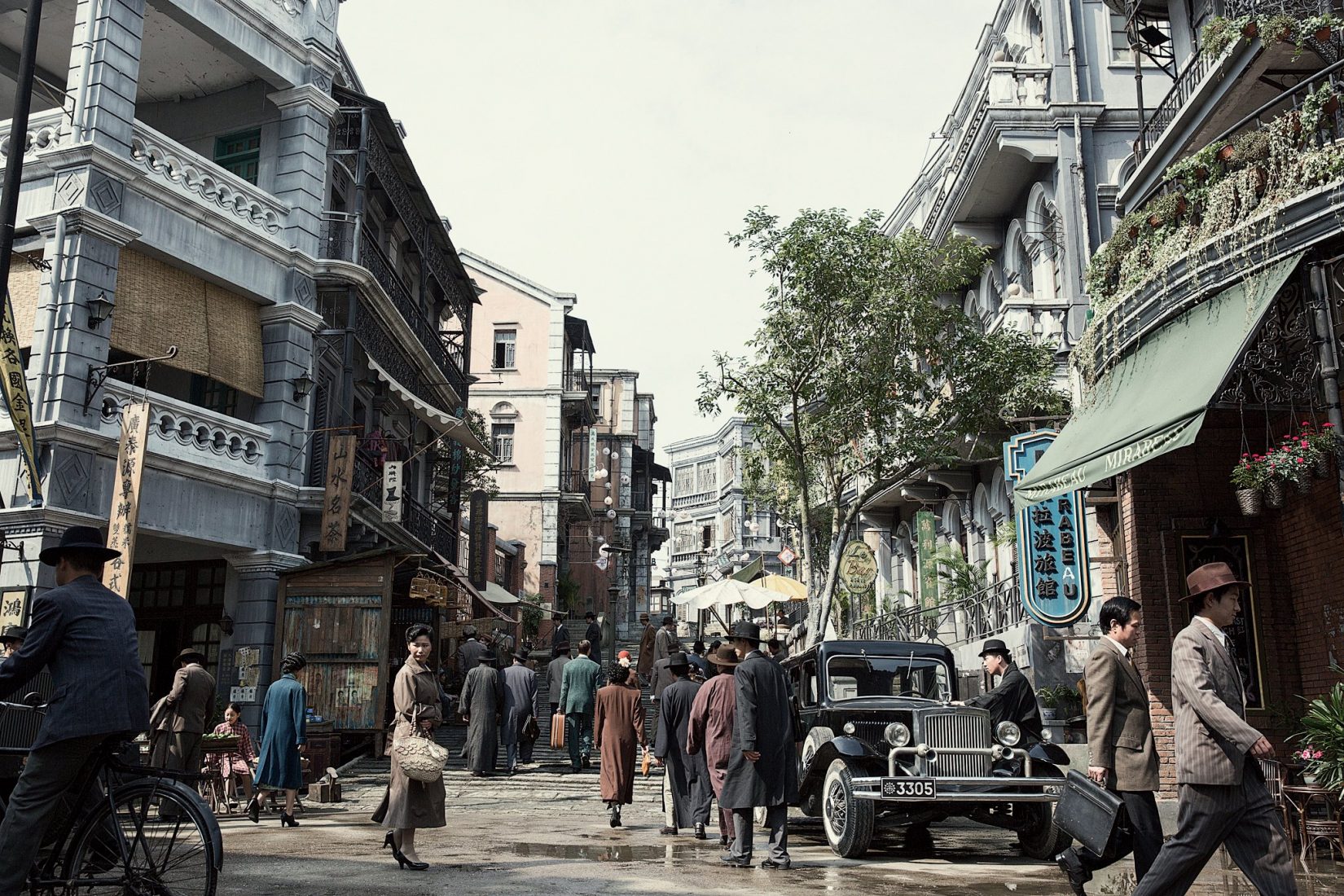
Among the guns-for-hire in the city are two notorious Koreans, “Hawaii Pistol” (Ha Jung-woo of The Handmaiden) and his moustachioed accomplice “Buddy” (Oh Dal-su of The Thieves), who are by turns after the assassins and helping them. Hawaii Pistol and Ahn Ok-yun meet by chance in the Hotel Mirabeau in Shanghai: despite the money he’s paid to kill her, he keeps on aiding, saving and sparing her. There’s superb, understated chemistry between these two leads. Hawaii Pistol seems to be the cynical foil to Ok-yun’s nationalist zeal, questioning if she really believes killing two men will bring about Korea’s independence. “We just need to let them know we’re still fighting,” she tells him. But, like her, he has his own private wounds and anger, a member of the “Patricidal Club” of sons who took revenge on their fathers to punish them for political collusion.
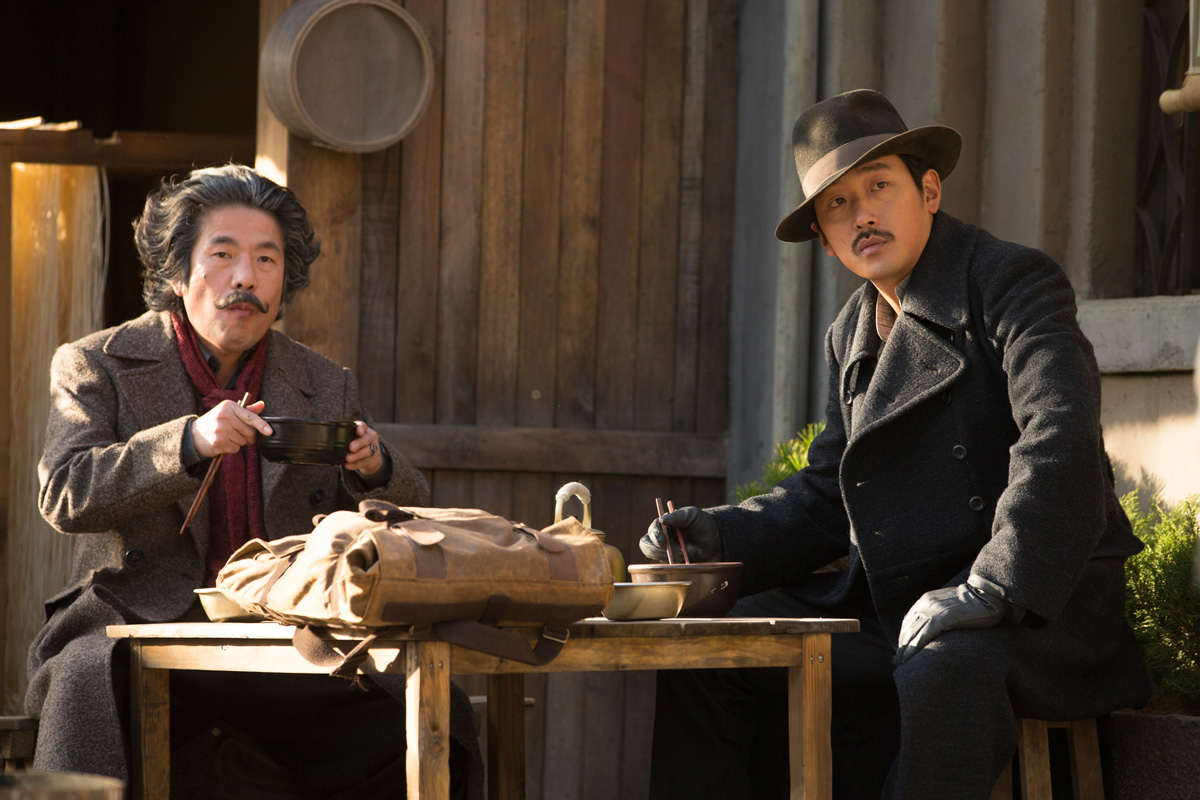
A number of the cast worked with Choi Dong-hoon on his 2012 hit The Thieves: Jun Ji-hyun, Lee Jung-jae, Oh Dal-su, Kim Hae-sook, Choi Deok-moon. (With her acting range and sparkling eyes, Kim Hae-sook is the Korean Judi Dench; here she manages the Anemone Café in Seoul, a front for the resistance.) Jun Ji-hyun has more range in this role: she gets to smile less and fight more, and it’s useful to watch this after her agile high-jinks in The Thieves and before Kingdom: Ashin of the North, where her character wreaks large-scale violent revenge. In Assassination she plays the dual role of separated twin sisters, whose reunion depends on a chance encounter—like Ok-yun’s first encounter with Hawaii Pistol in Shanghai, and his own train-carriage introduction to Mitsuko’s fiancé Kawaguchi Shunsuke (Park Byung-eun of Kingdom), which gets him into the society wedding (gone wrong) of the year.
Fans of Choi Dong-hoon probably won’t be irked by the overplaying of coincidence in the script, his fondness for bringing back characters—apparently no longer part of the story—in the final scenes, or the general rule that the longer characters lasts in the movie, the more prolonged their death throes. There’s one sympathetic Japanese character—Anemone bartender Kimura (Tamura Hiroto), who helps the Korean resistance. But the rest are cartoon villains, particularly Kawaguchi Shunsuke, the world’s most evil fiancé. In the train, Hawaii Pistol asks him how many Koreans he’s killed, and Kawaguchi holds up three fingers—meaning, we discover later, three hundred.
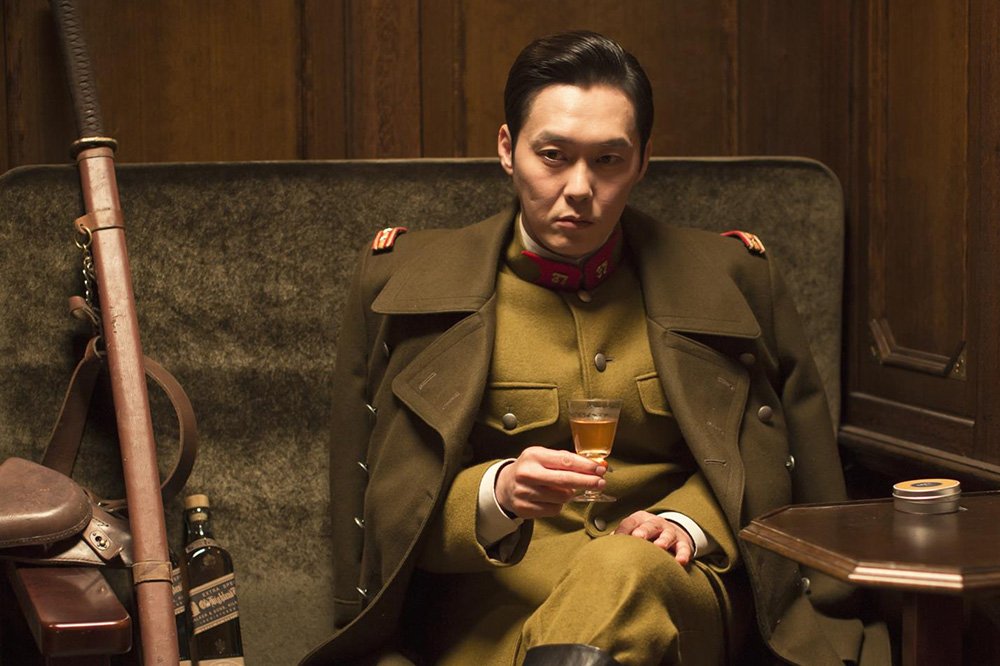
This is a film about both political and personal betrayal. Yem Sik-jin reveals his true allegiances when he hands over information on the three assassins to the Japanese. In this role, Lee Jung-jae is by turns charismatic and ruthless, his treachery at the centre of much of the violence in a film built around numerous high-action, guns-blazing set pieces. Revenge attacks frame Assassination, and the body (and explosion) count is high.
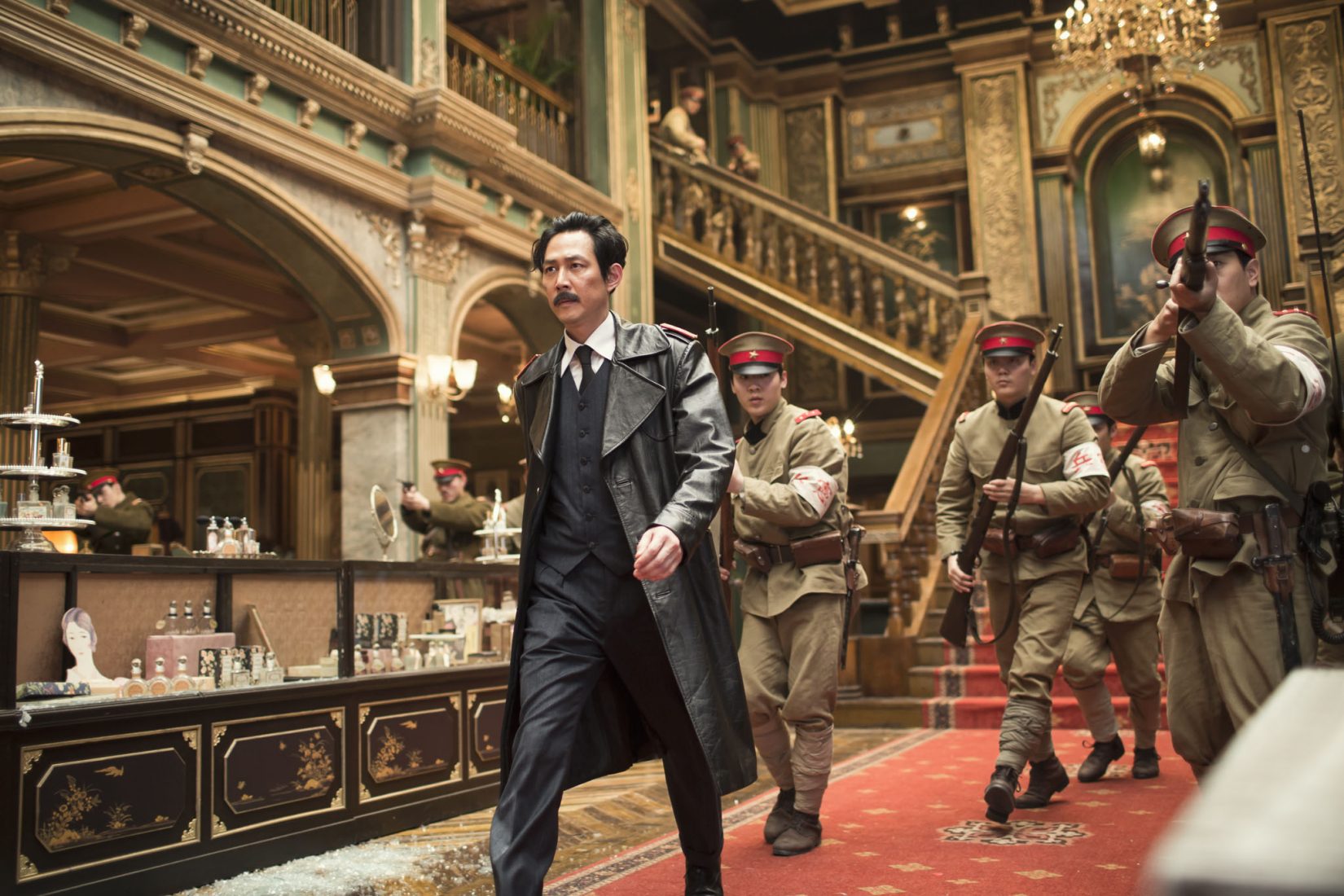
Built around numerous high-action, guns-blazing set pieces, it manages to skirt gratuitous violence and, aided by its accomplished cast, reveal something of the chaos and danger of the period. This is an exciting and sometimes poignant film, emphasising the sacrifice of so many individuals, their names lost to history, involved in the resistance against Japanese colonial rule.
